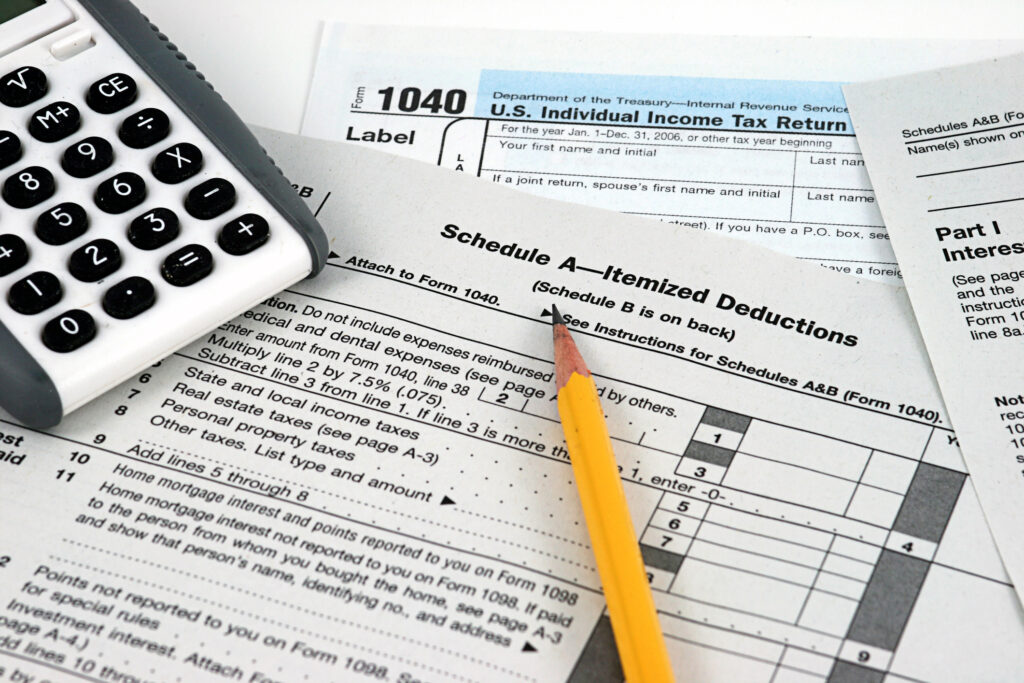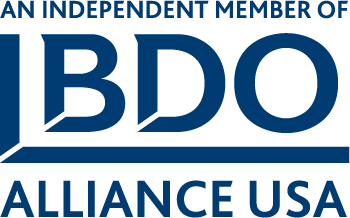There are two ways you can take deductions on your federal income tax return: you can itemize deductions or use the standard deduction. Deductions reduce the amount of your taxable income.
The standard deduction amount varies depending on your income, age, whether or not you are blind, and your filing status. The amount is also adjusted annually for inflation.
Certain taxpayers cannot use the standard deduction:
- A married individual filing separately whose spouse itemizes deductions.
- An individual who files a tax return for a period of less than 12 months because of a change in his or her annual accounting period.
- An individual who was a nonresident alien or a dual-status alien during the year. However, nonresident aliens who are married to a U.S. citizen or resident alien at the end of the year and who choose to be treated as U.S. residents for tax purposes can take the standard deduction.
Itemized deductions include amounts you paid for state and local income or sales taxes, real estate taxes, personal property taxes, mortgage interest, and disaster losses from a Federally declared disaster. You may also include gifts to charity and part of the amount you paid for medical and dental expenses. You would usually benefit by itemizing if you:
- Cannot use the standard deduction or the amount you can claim is limited
- Had large uninsured medical and dental expenses
- Paid interest or taxes on your home
- Had large “other” deductions
- Had large uninsured casualty or theft losses from a Federally declared disaster
- Made large contributions to qualified charities
The higher standard deduction under Tax Reform means fewer taxpayers are itemizing their deductions. However, taxpayers may have an opportunity to itemize this year by keeping these tips in mind:
Deducting state and local income, sales and property taxes. The deduction that taxpayers can claim for state and local income, sales and property taxes is limited. This deduction is limited to a combined, total deduction of $10,000. It is $5,000 if married filing separately. Any state and local taxes paid above this amount can’t be deducted.
Refinancing a home. The deduction for mortgage interest is also limited. It’s limited to interest paid on a loan secured by the taxpayer’s main home or second home. For homeowners who choose to refinance, they must use the loan to buy, build, or substantially improve their main home or second home, and the mortgage interest they may deduct is subject to the limits described in the next bullet under “buying a home.”
Buying a home. People who buy a new home this year can only deduct mortgage interest they pay on a total of $750,000 in qualifying debt for a first and second home ($375,000 if married filing separately). For existing mortgages, if the loan originated on or before December 15, 2017, taxpayers continue to deduct interest on a total of $1 million in qualifying debt secured by first and second homes.
Donating items and deducting money. Many taxpayers often find unused items in good condition they can donate to a qualified charity. These donations may qualify for a tax deduction. Taxpayers must have proof of all cash and non-cash donations.
Deducting mileage for charity. Driving a personal vehicle while donating services on a trip sponsored by a qualified charity could qualify for a tax break. Itemizers can deduct 14 cents per mile for charitable mileage driven in 2021.
Reporting gambling winnings and claiming gambling losses. Taxpayers who itemize can deduct gambling losses up to the amount of gambling winnings.
If you have any questions related to itemized deductions or tax planning in general, contact the Crosslin tax team at (615) 320-5500. We are here to help!







